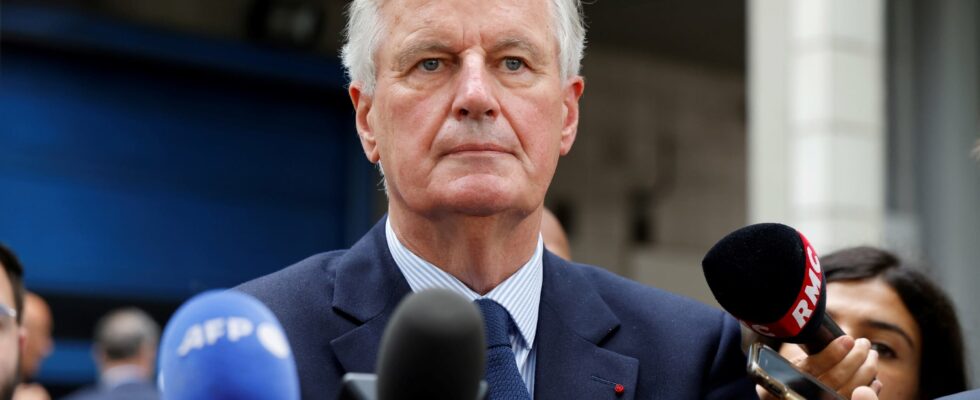Michel Barnier’s new ministers took office on Monday 23 September, following a series of transfers of power.
. Whether it is by retirees, farmers, teachers or even residents of the Overseas Territories, the members of this new government are eagerly awaited. They will have to work without delay on several particularly hot issues.
Unemployment insurance: “emergency”
Suspended in extremis on the evening of the first round of the legislative elections, the reform of unemployment insurance, which plans to tighten the conditions of access and the rules of compensation, is at the top of the pile. The rules currently in force have been extended twice, but expire on October 31.
The new Minister of Labor, Astrid Panosyan-Bouvet, who had spoken out against the reform, had considered that “the urgent matter” was not to “reform unemployment insurance” but to “make jobs that are not attractive” and to “remove the central obstacles to employment – training, transport, housing, childcare”. Will she maintain this line?
Pensions: repeal or adjustment?
Thousands of people took to the streets against the pension reform last year without preventing the entry into force of the text gradually raising the legal age to 64. On Sunday evening, Michel Barnier promised to “take the time to improve” the reform while “preserving the financial framework” of the law. The Prime Minister added that he would “trust the social partners to improve this law, to reform”.
“Nothing is right in this reform so we cannot amend it,” warned Sophie Binet, leader of the CGT in favour of its “repeal”, a little earlier. A repeal text presented by the National Rally (RN) must be examined in the Assembly on 31 October.
Teachers “angry”
The new Minister of National Education, Anne Genetet, the fifth in two years, will have to manage the issue of the lack of teachers and the crisis of attractiveness of the profession, one of the “structural emergencies” for the unions. More than 3,000 positions have still not been filled in the teaching competitions this year.
The experimentation of the uniform, the place of screens in schools or the obligatory nature or not of the brevet to pass in second year are also on the desk of the minister, close to Gabriel Attal, whose nomination was described as “political bargaining”, “without consideration for the School”, by the Snes-FSU which said it was “angry”.
A budget in arrears
By the Prime Minister’s own admission, France is in a “very serious” budgetary situation: the Treasury recently warned of a risk of the deficit slipping to 5.6% of GDP in 2024 with unchanged policy, while the country is already being criticized by Brussels for excessive deficit.
The new government therefore has the difficult task of urgently preparing a budget that will involve significant spending cuts and potentially tax increases, all while ensuring that it finds support in Parliament.
Sick health
The Social Security budget for 2025, which is already behind schedule, will be a real headache. While hospitals, bled dry, are asking for a 6% increase in their budget for the next Social Security financing bill, the new Minister of Health, Geneviève Darrieussecq, is expected to see the deficit in the health sector widen to 11.4 billion euros in 2024.
Other issues that Geneviève Darrieussecq will have to tackle: medical desertification and inequalities in access to care, which are the cause of a feeling of abandonment among many French people. Prime Minister Michel Barnier also wants to make mental health “the great national cause” in 2025.
Impatient farmers
Faced with the worst wheat harvest in 40 years, a surge in epizootic diseases affecting sheep and cattle herds and complicated harvests in some vineyards, farmers are demanding emergency measures such as the release of subsidized loans or greater coverage of vaccination.
Above all, they are waiting for the government to deliver on several of the promises made during the agricultural crisis this winter. However, several projects, including that of a major agricultural orientation law, have been suspended by the dissolution.
Overseas, rough navigation
François-Noël Buffet, designated Minister of Overseas Territories, will have to manage several highly sensitive issues. First in New Caledonia, where 13 people have died in violence since May, following the pro-independence mobilization against the reform of the electoral body that has since been suspended. He starts with the advantage of knowing the issue well: he led a cross-party delegation there in March.
He will also have to deal with the Martinique issue: the Caribbean island has been in the grip of tensions in recent days, with demonstrations against the high cost of living. Another subject: Mayotte, faced with the multifaceted consequences of a crisis, particularly a migration crisis.
